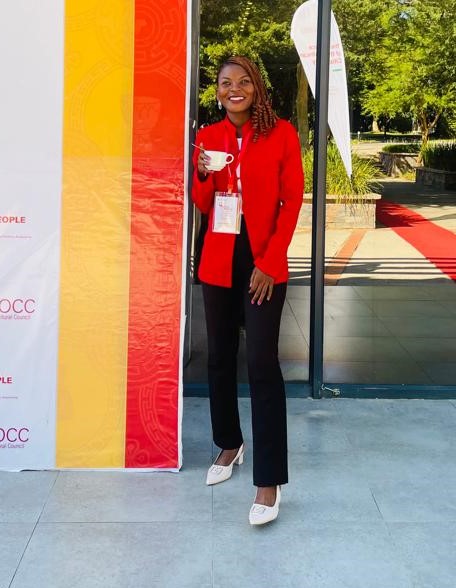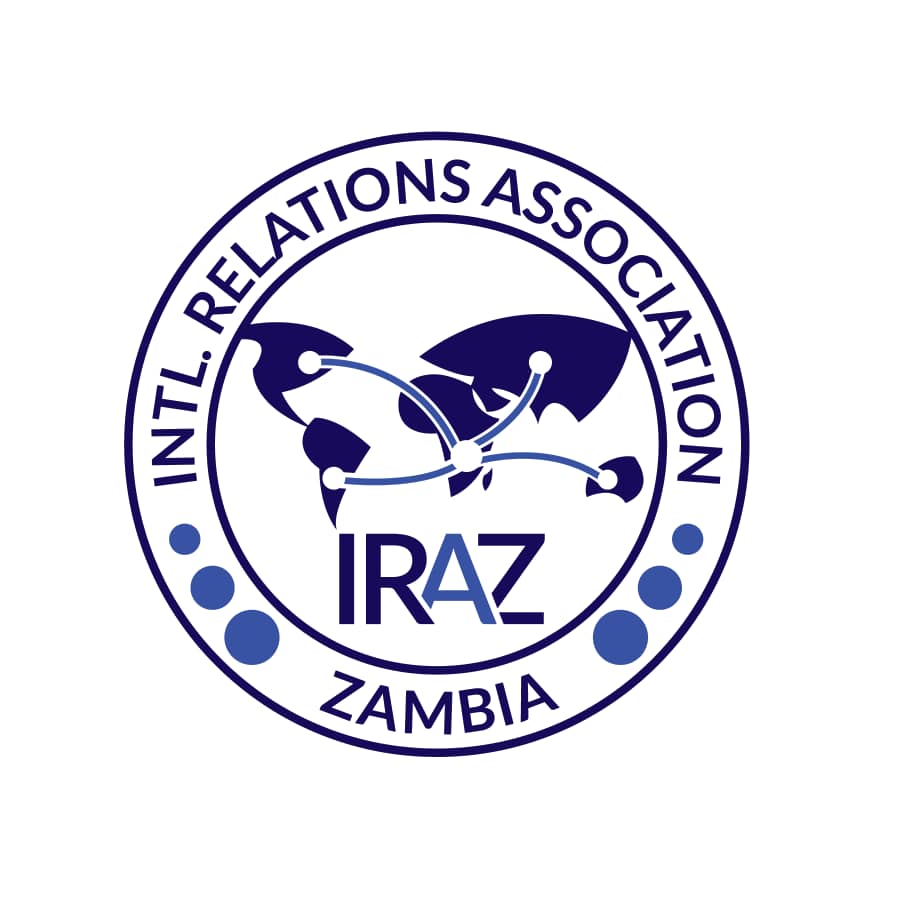Four Years of the UPND Administration: International Relations and Diplomacy Edition
By Ms. Rosemary Nsepe

Some observers, particularly critics of the UPND Administration argue that under the Hichilema Administration, Zambia has substantially changed the country’s traditional role in the world by altering some of the key elements of Zambia’s foreign policy while the defenders of the administration argue that the administration has strategically and methodologically repositioned Zambia’s relevance in the international community. Here are a few areas of interest.
A New Chapter for Israel and Zambia Relations:
The announcement to reopen the Israel embassy in Lusaka left Mixed reactions from the Zambian public with some organizations planning to protest the reopening of the embassy. After over 50 years, Israel reopened its embassy in Lusaka on August 21st 2025, this came at a time when the state of Israel is facing heavy backlash from the public and international community for its offensive in GAZA. Some observers argue that Zambia should have taken a firm stance against Israel on moral and humanitarian grounds. Critics have also added that Kaunda’s foreign policy spoke out against imperialism and perceived Israel’s actions in Palestine as colonialism despite any economic benefits that Zambia could gain from Israel. However, the UNPD administration has maintained its position on the support for Palestinian people in their struggle for self-determination and their inalienable right to establish a homeland and has stated through its Ministry of Foreign Affairs news update that, the administration continues to advocate for a peaceful and lasting resolution to the Israeli–Palestinian conflict, based on the principles of the Two-State Solution – the creation of an independent State of Israel and an independent State of Palestine, living side by side in peace and harmony.
Strengthened Regional Cooperation:
Premised on economic diplomacy, the administration has deepened its relationship with its neighbors through innovative channels of diplomacy. A few examples include the inaugural session of the Bi- National Commission between Zambia and Botswana. The commission elevated the relations and culminated into the signing of two Memoranda of understanding in key areas including health and disaster risk management. A joint communique on the occasion of the working visit to Zambia by H.E Dr Netumbo Nandi Ndaitwah President of Namibia from 15th to 16th May 2025 also indicated that both Zambia and Namibia expressed satisfaction with the existing bilateral cooperation and reaffirmed their commitment to strengthening their economic ties in sectors such as transport, logistics, energy and infrastructure. The administration has also remained committed to working with all member states from SADC (Southern African Development Community) and COMESA (Common Market for Eastern and Southern Africa).
Smooth EU- Zambia Relations
The EU and Zambia relations are characterized by a 50-year partnership focused on sustainable growth, green transition, human development, and good governance. The transition of government in August 2021, opened a promising chapter of deeper EU – Zambia relations with the highlight being the address delivered by H.E President Hakainde Hichilema on June 23rd, 2022 to the European parliament were the famous phase “Zambia is back in the champions league” was coined. Other key areas of cooperation include infrastructure development through the Global Gateway strategy, with major investments in the Lobito Corridor, Great North Road Project, Geographical survey and mine mapping, Kariba Dam Rehabilitation project, Agriculture, Environment and Forestry, Health and Education and Governance.
Fragmented US- Zambia Relations
what seemed like a rosy relationship between the US during the Biden Administration and Zambia under the UPND Administration is currently facing what seems to be more like a fragmented relationship under the Trump Administration. Despite a key visit to Zambia by former Vice president Kamala Harris in March of 2023, similar to other African countries, Zambia has not been spared from the US Trade tariffs that will effectively end AGOA (African Growth and Opportunity Act) and reciprocal visa conditions by requesting Visa Bonds ranging from USD 5000 to USD 15,000 specifically for B-1(temporary business) and B-2 (tourism, medical treatment and family visits). The American ambassador to Zambia H.E Michael Gonzalez had also previously announced the suspension of 50 million (k1.4 billion) in annual health Aid to Zambia citing systematic theft of donated medical drugs. However, the UPND Government has still maintained that the differences between Zambia and the US do not affect its long-standing bilateral relationship and mutual cooperation.
All Weather China- Zambia Friendship
Battled by a documentary released by the Newsdiggers media platform, the Zambia- China relations under the UPND government faced backlash and what one can define as a challenging period. The documentary titled “Chinese Investment in Zambia: The Good, The Bad and the Dangerous” sparked strong reactions from the Zambian public and different stakeholders. However, the UPND Administration has managed to diplomatically navigate a situation that could have led to confrontation and severed diplomatic ties. Going by its name, the Zambia-China All weather friendship has continued on a path of mutual cooperation, political trust and equality, enhanced cultural exchanges and solidarity on global challenges. Really proving that come what may, Zambia and China maintain a lasting friendship
Economic Diplomacy as a Bottom Line
Since independence, Zambia’s Foreign Policy has undergone several phases of transformation, largely determined by regional and international dynamics prevailing at the time as well as the ruling political party. The UPND government under the leadership of H.E President Hakainde Hichilema has adopted an economic orientation in the country’s external relations aimed at facilitating trade, attracting foreign investment as well as projecting Zambia as a stable and peaceful country, which has marked a greater focus on economic diplomacy in Zambia- similar to that of former late president Fredrick J.T. Chiluba’s Administration. Under this Administration Zambia is informed by twin pillars which include: Peace, Security and Stability and Economic Diplomacy
What the Future Holds
From the above-mentioned points, Zambia’s Foreign Policy is subject to change based on the ruling government and the dynamics of the region and international environment prevailing at that time. A report conducted by a committee on national security and foreign affairs indicated that the vision of the Zambian missions was to make Zambia an effective and influential player on the regional and international arena. However, there had been widespread complaints about whether or not the diplomats were qualified to hold such positions or whether the system was inclusive and transparent. The UPND has tried to solve this contentious issue by keeping diplomatic appointments more professional and less political and by introducing a three-year Diploma in Diplomacy and International Relations in collaboration with Zambia Institute for Diplomacy and International studies (ZIDIS) and the Copperbelt University. Unfortunately, the dust is yet to settle. All relevant stakeholders need to work together to find a lasting solution to practical challenges facing Zambia’s Diplomatic future. There is evidence of an increase of professional international relations practitioners as the field of international relations is now offered at four major universities and institutes in Zambia namely; Mulungushi University (MU), Liutebm University, University of Lusaka (UNILUS), University of Zambia (UNZA) and The Institute of Public Administration (NIPA).
References
Congressional Research Service https://crsreports.congress.gov R44891
Zambia revised foreign policy document ; https://eu.docworkspace.com/d/sIDbgnYpfuJO4xQY?lg=en-US&sa=601.1074&ps=1&fn=attachment.pdf
Ministry of Foreign Affairs & International Cooperation Newsletter April 2025-ISSUE NO-1
Ministry of Foreign Affairs & International Cooperation Press Statement 8TH August, 2025: Zambia Responds to USA VISA Bond Requirement for B-1/B-2 Applicants
Ministry of Foreign Affairs & International Cooperation Facebook Post 20 August, 2025: Official Opening Ceremony of the Resident of the Embassy of the State of Isreal in Lusaka
Ministry of Foreign Affairs & International Cooperation Facebook Post 2nd August, 2025: President Hichilema and President Boko Grace the 97th Agricultural and Commercial Show
Mwebantu facebook page https://www.facebook.com/100064560977290/posts/1131962085632480/
Andy DeRoche (1964) Dilemmas of Postcolonial Diplomacy: Zambia, Kenneth Kaunda, and The Middle East Crisis
